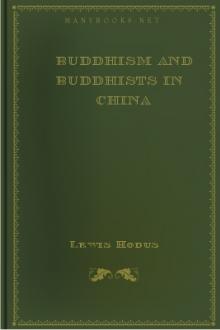author - "Lewis Hodous"

teraryability and religious fervor to the spreading of the new religion andits success was in no small measure due to their efforts. As a result ofthis early association the tenets of the two religions seemed so muchalike that various emperors called assemblies of Buddhists and Taoistswith the intention of effecting a union of the two religions into one.If the emperor was under the influence of Buddhism he tried to force allTaoists to become Buddhists. If he was favorable to Taoism he tried tomake all Buddhists become Taoists.
But such mandates were as unsuccessful as other similar schemes havebeen. In the third century A. D. after the Han dynasty had ended, Chinawas broken up into several small kingdoms which contended for supremacy,so that for about four hundred years the whole country was in a state ofdisunion. One of the strong dynasties of this period, the Northern Wei(386-535 A. D.), was distinctly loyal to Buddhism. During itscontinuance Buddhism prospered greatly. Although Chinese wer

teraryability and religious fervor to the spreading of the new religion andits success was in no small measure due to their efforts. As a result ofthis early association the tenets of the two religions seemed so muchalike that various emperors called assemblies of Buddhists and Taoistswith the intention of effecting a union of the two religions into one.If the emperor was under the influence of Buddhism he tried to force allTaoists to become Buddhists. If he was favorable to Taoism he tried tomake all Buddhists become Taoists.
But such mandates were as unsuccessful as other similar schemes havebeen. In the third century A. D. after the Han dynasty had ended, Chinawas broken up into several small kingdoms which contended for supremacy,so that for about four hundred years the whole country was in a state ofdisunion. One of the strong dynasties of this period, the Northern Wei(386-535 A. D.), was distinctly loyal to Buddhism. During itscontinuance Buddhism prospered greatly. Although Chinese wer